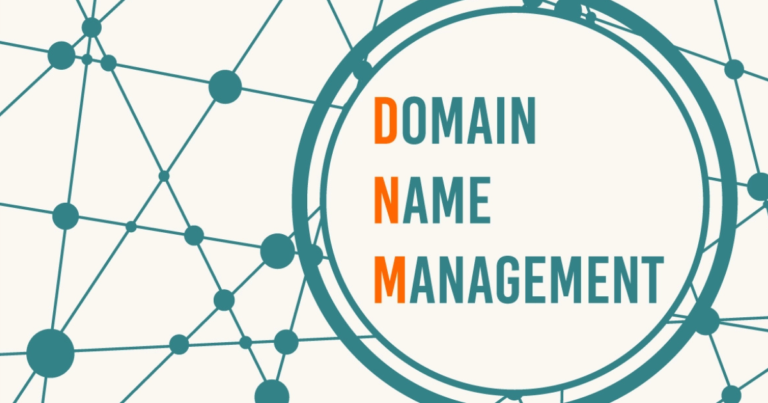The Ultimate Guide to Domain Hosting vs. Web Hosting for Beginners
Navigating the realm of online presence can indeed be daunting, particularly when distinguishing between domain hosting and web hosting. This guide caters to beginners, systematically elucidating the fundamental concepts and functions of each, including important tips on choosing a domain registrar and understanding different top-level domains, to empower informed decision-making.
It delves into the key differences, illustrating how these elements interact and highlighting essential considerations for selecting the most suitable web hosting plans and domain extensions for one’s website needs.
By the conclusion, readers will possess a comprehensive understanding of how to effectively establish their online footprint, manage DNS settings, and choose a suitable web hosting service.
Key Takeaways:
- Domain hosting is the registration of a website’s unique address or URL, while web hosting is the physical storage and maintenance of the website’s content.
- Understanding the differences between domain hosting and web hosting can help beginners make informed decisions when choosing the right hosting solution for their website.
- While domain and web hosting are often bundled together, they serve different functions and should be approached separately when considering factors like ownership, functionality, and cost.
The Ultimate Guide to Domain Hosting vs. Web Hosting for Beginners
In the contemporary digital landscape, comprehending the distinctions between domain hosting and web hosting is essential for anyone aspiring to establish a robust online presence. This comprehensive guide seeks to elucidate the fundamental concepts surrounding both domain hosting and web hosting, offering clarity to beginners regarding how each component contributes to the functionality and accessibility of a website.
Whether one is considering the acquisition of a new domain name or investigating various web hosting services, grasping these critical essentials will enable individuals to make informed decisions for their web endeavors.
What is Domain Hosting?
Domain hosting encompasses the service that enables individuals and organizations to acquire and register domain names, which represent the unique addresses of their websites on the internet, often linked to specific top-level domains like .com, .org, or .net.
To initiate the process of purchasing a domain name, one must select a domain registrar—a company responsible for managing the reservation of Internet domain names. This initial step is paramount, as registrars not only facilitate the transaction but also guarantee that the domain name is properly registered and secured.
The registration process typically involves selecting a name, verifying its availability, and paying the requisite fees. Once the domain is registered, it becomes imperative to consider domain privacy options, which serve to safeguard personal information associated with the domain, especially for those using platforms like GoDaddy or Namecheap.
Employing advanced security measures, such as two-factor authentication, can further protect against unauthorized access, bolstering overall security. Consequently, a comprehensive understanding of domain hosting, including domain name registration and management, is essential for establishing a credible and trustworthy online presence.
What is Web Hosting?
Web hosting serves as the backbone of online presence, providing the essential infrastructure and technology necessary to store and deliver website files over the internet. This allows users to seamlessly access sites through their web browsers, relying on robust hosting servers for consistent performance.
This foundational service offers a range of options, including shared, VPS, and dedicated hosting, each tailored to meet varying needs and budgets. Shared hosting presents an economical solution for smaller websites, while VPS and dedicated hosting provide the robust power and control required by growing businesses, especially WordPress websites, and more complex applications.
Choosing a reputable hosting provider such as Bluehost or Hostinger is paramount, as it significantly influences site performance, security, and uptime. With a dependable web hosting account, users can effectively manage their websites, update content, bolster security measures, and scale resources as necessary, ensuring a seamless and responsive experience for their visitors.
Key Differences Between Domain Hosting and Web Hosting
Grasping the fundamental distinctions between domain hosting and web hosting is crucial for beginners seeking to establish a cohesive online presence. These two services, while distinct, play complementary roles in the realm of website management, each contributing to the overall functionality and accessibility of a website.
Ownership and Registration

In terms of ownership and registration, domain names must be registered through a domain registrar, ensuring that each name remains unique and directly associated with its owner. This process typically entails selecting an available name, providing the necessary registration details, and paying an annual fee.
Domain privacy emerges as a critical consideration during this phase, as it safeguards personal information from public exposure in the WHOIS database, thereby mitigating the risks of spam and identity theft. By securing a domain name, website managers acquire exclusive control, allowing them to craft a distinctive online presence that enhances their brand’s credibility and accessibility. For those looking to understand more about the differences between domain hosting and web hosting, check out The Ultimate Guide to Domain Hosting vs. Web Hosting for Beginners.
Effectively managing a website depends not only on the strategic selection of a domain but also on the diligent protection of these vital assets through responsible ownership practices. For more insights, check out The Ultimate Guide to Domain Hosting vs. Web Hosting for Beginners.
Functionality and Purpose
The functionality and purpose of domain hosting and web hosting are markedly distinct; domain hosting centers on providing a unique web address, including the domain name system (DNS), while web hosting is tasked with storing website files and ensuring their accessibility online.
These two components, although separate, collaborate seamlessly to create an optimal online experience for users. Domain hosting serves as the digital identity of a website, enabling visitors to easily locate it within the expansive landscape of the Internet. Conversely, web hosting functions as the foundational support for the website’s content, ensuring that images, text, and other media load swiftly and efficiently, crucial for effective speed performance.
Together, they not only assist businesses in establishing a credible online presence but also elevate user satisfaction by guaranteeing prompt access to information and services. Thus, comprehending their individual roles is crucial for anyone aspiring to build a successful website.
Cost Considerations
Cost considerations play a vital role in both domain and web hosting, with a variety of plans and packages designed to accommodate different budgets and website requirements, including options for purchasing a free domain name with certain hosting packages.
When diving into these options, it is essential to recognize how various factors can impact overall expenses. Features such as storage capacity, bandwidth limits, RAM, and levels of customer support can differ markedly based on the hosting provider. Pricing models may encompass monthly payments, annual subscriptions, or even one-time fees for specific services.
For those new to the field, comparing the advantages of shared hosting against dedicated servers is advisable, while also keeping an eye out for bundled services that promise greater value, such as free email accounts and user-friendly control panels.
Leveraging user reviews and trial periods can further assist in making a well-informed decision.
How Domain Hosting and Web Hosting Work Together
Domain hosting and web hosting function in harmony to guarantee that a website remains accessible to users. The domain name acts as a guiding beacon, directing traffic to the hosting server, where the website files are meticulously stored.
The Role of DNS (Domain Name System)
The Domain Name System (DNS) serves as the internet’s phonebook, adeptly translating user-friendly domain names into unique numerical strings known as IP addresses, thereby enabling browsers to locate hosting servers. This crucial intermediary process not only streamlines navigation for users but also plays a vital role in web performance, critical for managing a WordPress website hosted on platforms like WordPress.com or WordPress.org.
When a user inputs a domain name, the DNS resolves it by querying authoritative name servers, a process that can introduce latency if not properly optimized. Therefore, well-configured DNS settings can significantly enhance site speed. Various factors, such as TTL (Time to Live) settings and DNS caching, directly impact how swiftly a browser can retrieve a site’s IP address, consequently influencing loading times and the overall user experience.
A dependable DNS service ensures improved uptime, facilitating seamless connections to hosting services, even amidst high traffic periods.
Choosing the Right Hosting Solution

Selecting the appropriate hosting solution represents a pivotal decision that can profoundly influence an online presence, especially when considering different types of web hosting like CDN integration and SSL certificate offerings.
This process entails discerning the most suitable web hosting companies such as Network Solutions and plans tailored to the unique requirements of the website in question.
Factors to Consider for Domain Hosting
When considering domain hosting, several key factors come into play, including the choice of a reputable domain registrar, domain privacy options, and specific domain settings that may affect ownership. It’s important to choose a domain extension that aligns with your website needs and target audience.
Prioritizing security features is essential; for instance, domain privacy can effectively shield personal information from public view, thereby helping to prevent spam and potential identity theft. A trustworthy registrar not only offers robust customer support but also provides features such as two-factor authentication, which adds an additional layer of protection to the account. Consider exploring different types of domain options, such as top-level domains like .com, .org, or .net, for a more unique online presence.
Regular monitoring of domain expiration dates, along with ensuring that auto-renewal is enabled, can prevent the unintentional loss of ownership. Ultimately, grasping these aspects facilitates a smoother experience and safeguards one’s online presence.
Factors to Consider for Web Hosting
Selecting a web hosting service requires a careful evaluation of various factors, including speed performance, bandwidth offerings, and the array of hosting packages that reputable providers offer. You’ll want to ensure that your website files are stored securely and that your hosting server is reliable.
Beyond these preliminary considerations, examining uptime guarantees becomes essential, as they ensure the website remains accessible to users without interruptions, significantly enhancing visitor retention. Customer support is another critical aspect; a responsive team can swiftly address issues, ensuring smooth operations. Furthermore, scalability should not be underestimated, as a business may encounter growth that necessitates additional resources. Choosing the right web hosting plans can enhance your website’s performance and ensure your website visitors have a seamless experience.
By thoughtfully considering these elements, one can significantly influence overall website performance and enhance user experience, ultimately fostering better engagement and success.
Common Misconceptions
Common misconceptions surrounding domain hosting and web hosting frequently create confusion for beginners, often leading them to make misguided decisions that can adversely affect their online presence.
Do You Need Both Domain and Web Hosting?
A common inquiry among novices is whether the acquisition of both domain hosting and web hosting is necessary, as each serves a pivotal role in establishing a robust online presence. Understanding important concepts like the Domain Name System (DNS) and IP address can help clarify how these services interact.
Comprehending these services is essential, for they collaborate seamlessly to create a fully functional website. Domain hosting acts as the address of website that guides users to the site, while web hosting serves as the repository for the actual website files, making them accessible. To illustrate, envision attempting to visit a store advertised by a sign without a corresponding physical location; such a scenario would render shopping impossible.
In much the same way, without web hosting, even the most carefully curated domain name would lead to a dead end, rendering a website ineffective. The two services are interdependent; domain hosting directs visitors to the site, while web hosting allows the site’s content to be showcased. Consequently, it is imperative for anyone serious about their online endeavors to secure both services. For a deeper understanding, check out The Ultimate Guide to Domain Hosting vs. Web Hosting for Beginners.
Also Read: Top Features of cPanel vs. Plesk Hosting for Developers
Final Thoughts on Domain Hosting vs. Web Hosting

Final thoughts on domain hosting versus web hosting underscore the significance of making informed choices that align with a website’s needs and long-term objectives.
Understanding the distinctions between these two hosting types is essential for anyone aiming to establish a robust online presence. The selection of the appropriate hosting type can profoundly affect website performance, speed, and accessibility. Consider whether you need features like SSL certificate or CDN to enhance your site’s security and performance.
For beginners embarking on their online journey, it is advisable to begin by assessing the specific requirements of their site. They should refer to a beginners guide and take into account factors such as anticipated traffic, budget constraints, and their level of technical expertise. Additionally, consider whether a user-friendly control panel like that offered by Bluehost or Hostinger meets your needs.
Employing user-friendly platforms can streamline the process, while seeking reliable customer support provides invaluable peace of mind. Staying abreast of the latest trends and tools in hosting will enable users to make astute decisions, ensuring their digital footprint flourishes effectively. For WordPress website users, understanding the differences between WordPress.com and WordPress.org is crucial for selecting the appropriate hosting service provider.
FAQs
What is the difference between domain hosting and web hosting?
Domain hosting refers to the service of providing a unique domain name for a website, while web hosting refers to the service of storing and maintaining the files, databases, and software that make up a website.
Do I need both domain hosting and web hosting?
Yes, in order for a website to be accessible on the internet, it needs both a domain name and a web hosting service. They serve different purposes and work together to make a website functional.
Can I use the same company for domain hosting and web hosting?
While it is possible to use the same company for both domain hosting and web hosting, it is not required. You can choose different companies for each service, depending on your needs and preferences.
What are some examples of domain hosting companies?
Some popular domain hosting companies include GoDaddy, Namecheap, and Bluehost. These companies offer a variety of options for registering and managing domain names.
What are some examples of web hosting companies?
Some well-known web hosting companies include HostGator, SiteGround, and InMotion Hosting. These companies offer different hosting plans for websites of all sizes and types.
What should I consider when choosing a domain hosting and web hosting company?
When choosing a domain hosting and web hosting company, you should consider factors such as pricing, customer support, server reliability, and features offered. It’s important to find a company that meets your specific needs and budget.







